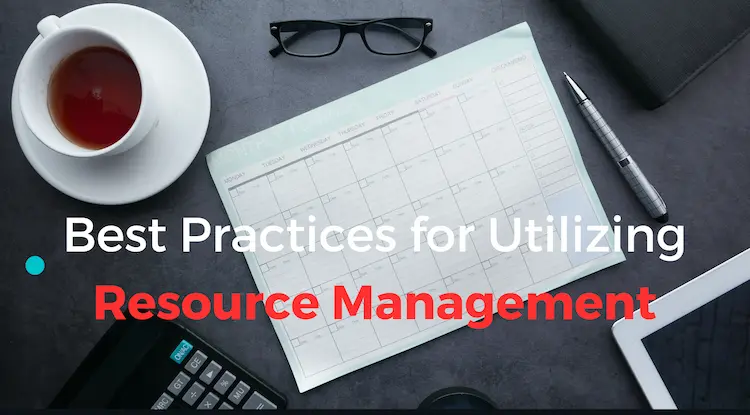Resource management is an essential aspect of any business operation. It’s a practice that ensures all resources, including people, equipment, technology, and processes, are utilized efficiently and optimally.
In this article, we delve into why resource management is crucial and the various ways to achieve successful resource management within an organization effectively.

Understanding the Importance of Resource Management
Resource management plays a pivotal role in today’s highly competitive business environment. It enables a company to maximize its resources, enhancing productivity and better delivery of services or products.
The process ensures resources are available when needed and are utilized most efficiently and economically, minimizing waste and improving profitability. For an in-depth understanding of resource management, you must grasp its relevance to the various components of a business, including project management, human resources, and finances.
Moreover, effective resource management can help businesses plan their future needs and strategize for sustained growth and competitiveness. Thus, investing time and effort in understanding resource management’s importance can be a game-changer for any organization.
Whether tackling complex projects, managing teams, or optimizing processes, resource management can make a significant difference in achieving business goals efficiently and cost-effectively.

Vital Components of Effective Resource Management
A well-planned resource management strategy hinges on several critical components. At the most fundamental level, it requires accurate knowledge of available resources and their potential. This includes understanding each resource’s capabilities, performance levels, and constraints.
Central to managing resources efficiently is the concept of resource planning. Businesses must accurately forecast their resource needs, depending on their operational requirements and strategic goals. Robust resource planning eliminates resource scarcity or over-utilization scenarios, ensuring a balance in resource allocation.
Equally important is resource scheduling, which ensures resources are allocated to tasks and projects at the right time. Quality of work, adherence to timelines, and improved productivity are some direct benefits of effective resource scheduling.
Monitoring and control is another key aspect of resource management. Regular assessment of resource utilization helps in identifying inefficiencies and implementing corrective measures. This would significantly improve resource management effectiveness by enhancing productivity while reducing waste.
Leveraging Technology for Efficient Resource Management
In this digital age, leveraging technology for resource management is beneficial and essential. With the rise of automation and artificial intelligence (AI), businesses can adopt various tools and software to streamline their resource management process.
Project management tools, for instance, offer resource allocation, scheduling, tracking, and reporting features, helping managers gain an overview of resource usage and performance. Among these, creative tools such as an easy flowchart maker have become indispensable, enabling quick creation and modification of flowcharts to visualize complex processes. Tools for communication and collaboration allow team members and managers to stay connected and share updates in real-time. At the same time, flowchart software enhances understanding and alignment on resource allocation and workflows.
Besides making management more efficient, technology also enhances decision-making. Data analysis tools can provide insights into resource utilization patterns, predict future resource needs, and inform strategic planning.
While adopting technology, companies must ensure the tools align with their needs and workflows. Moreover, staff should be trained adequately to use these tools effectively.

Overcoming Challenges in Implementing Resource Management
Resource management has its challenges. These can range from resistance to change, lack of skill in using technology, or difficulty accurately forecasting future resource needs.
However, these challenges can be overcome with proper preparation and planning. Businesses should look at training their team on the value and application of resource management. This can help diminish resistance and foster buy-in among employees.
When faced with technological challenges, companies can invest in training workshops and employee skill development programs. Equipping team members with the necessary skills will lead to smoother implementation of technology-based resource management practices.
Above all, leaders must stay agile and flexible, learning from their experiences and refining their resource management strategies as they navigate their journey toward successful resource management.
Final Words on Utilizing Resource Management
Effective resource management is crucial for any organization seeking to optimize its operational efficiency and drive business success. It’s a continuous process that requires planning, proper communication, technological leverage, and continuous improvement. With perseverance and strategic execution, companies can achieve efficient and cost-effective resource management.